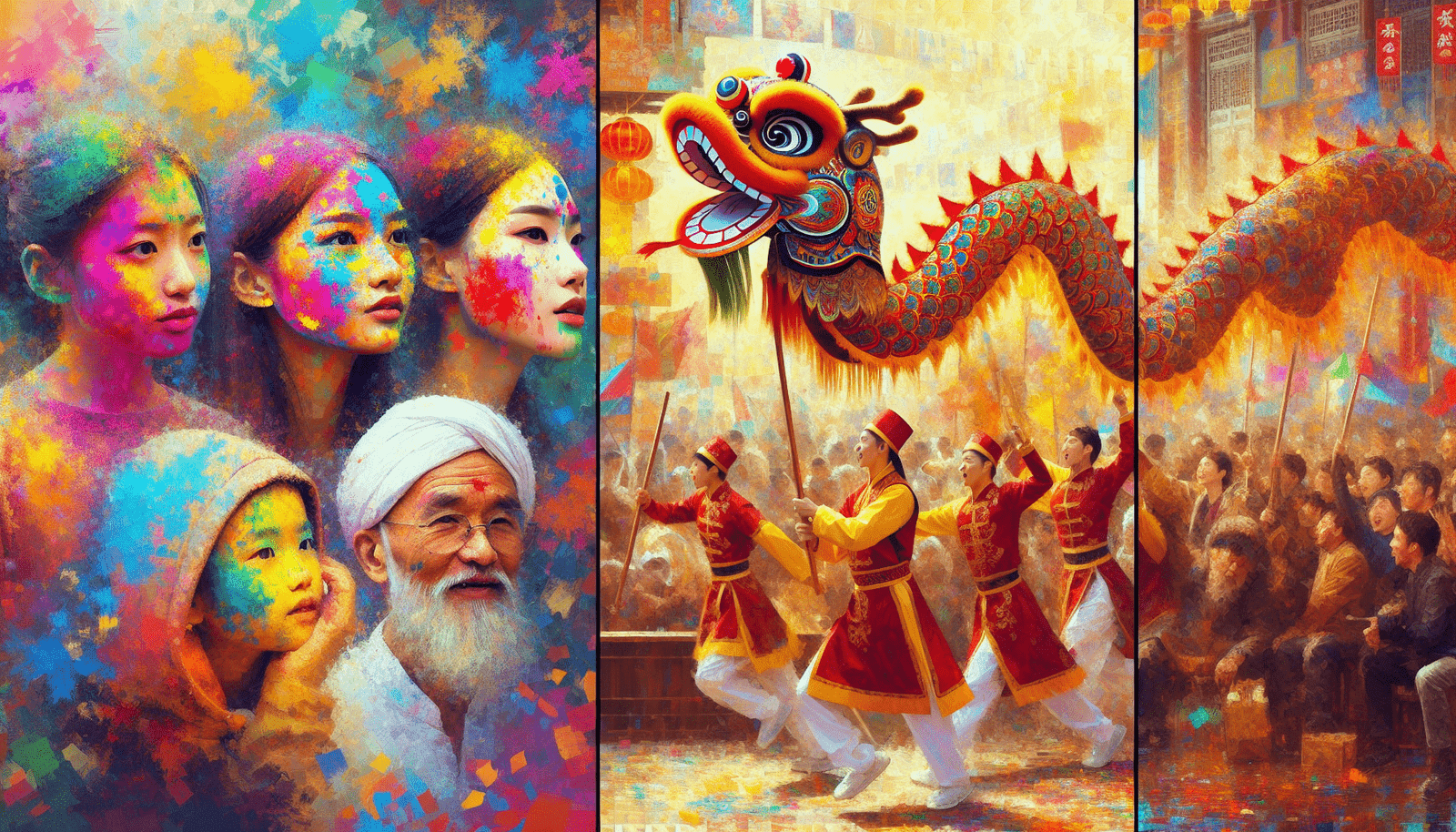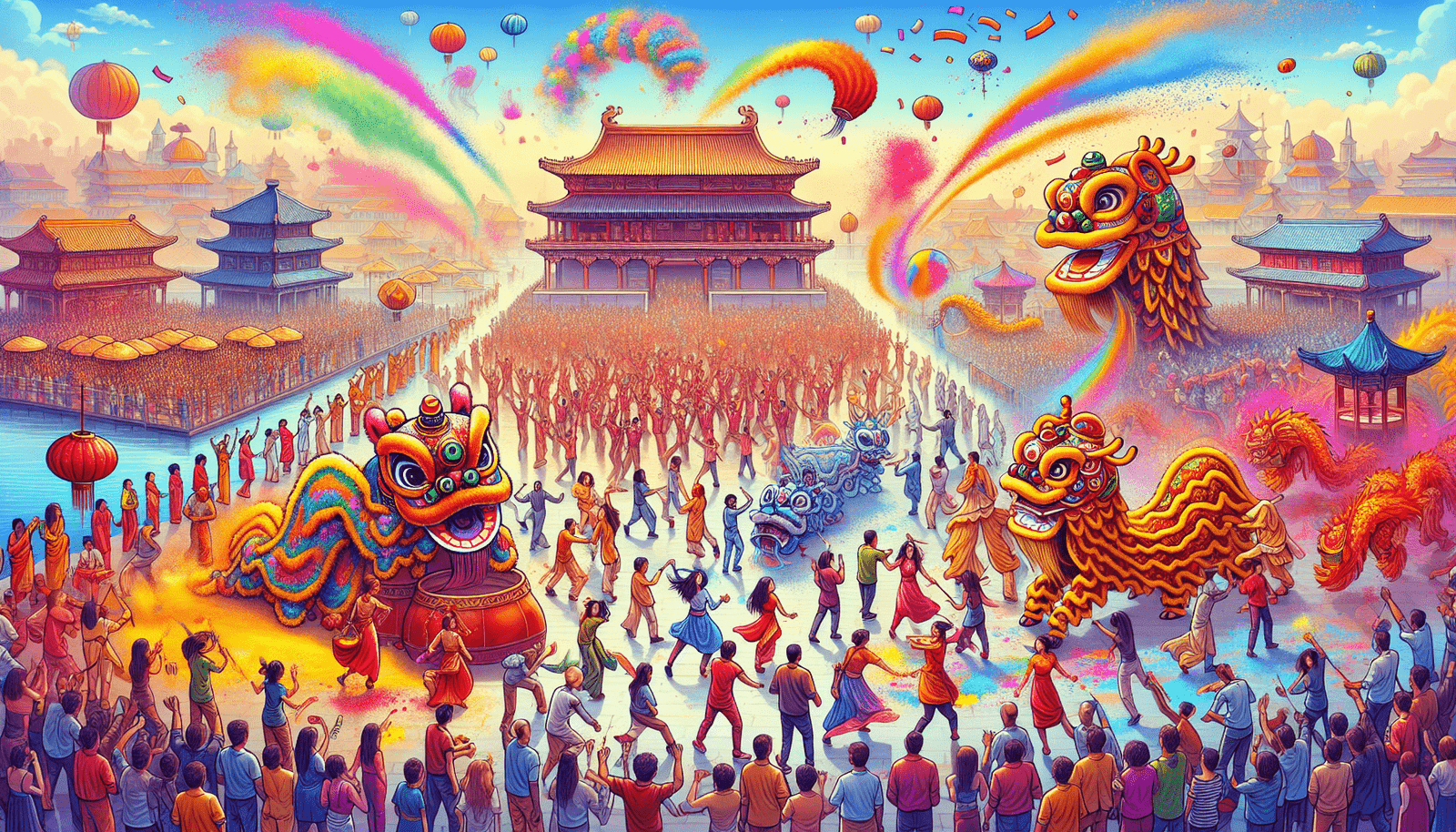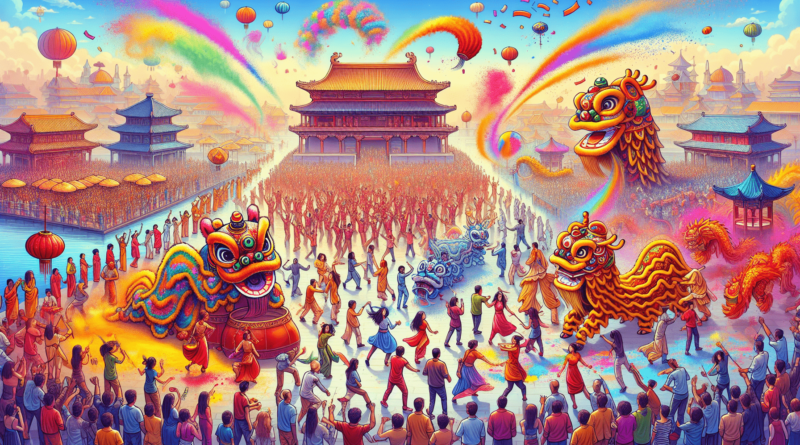Cultural Festivals
Imagine yourself in the heart of an exploding world of color, sounds, and aromas, uniquely characterized by an array of traditional ceremonies, intricate costumes, and exquisite delicacies. It’s where culture shines brightest – at a cultural festival. In the article, “Cultural Festivals”, you’ll embark on a journey through the indigenously rich tapestry of human heritage, as seen and experienced through dynamic cultural festivities around the globe. Picture yourself being swept away by the fanfare and spectacle of these events, embracing the chance to explore and appreciate diverse cultures in all their grandeur. Get ready for a captivating adventure that traverses continents, challenges stereotypes, and celebrates human creativity and spirit.

Understanding Cultural Festivals
Cultural festivals, as the term suggests, are large gatherings that celebrate a certain culture’s unique traits and traditions. These events, typically planned for specific dates, include a variety of activities, performances, and presentations that highlight the customary practices of their organizers’ heritage.
Definition of cultural festivals
Cultural festivals can be described as public celebrations that showcase the traditions, arts, and social aspects of a particular culture or group of people. They’re often marked with various activities like music, dance, art exhibitions, and food, all mirroring the cultural uniqueness of the people celebrating it.
Significance of cultural festivals to society
Cultural festivals mean a lot to society. They not only offer people a chance to celebrate their heritage, but they also provide an opportunity to learn about other cultures. They foster unity, as individuals from various cultural backgrounds gather to partake in the fun. These festivities also have the undeniable ability to break down cultural barriers and build bridges of understanding between people.
Common elements of cultural festivals
Certain elements are commonly observed in cultural festivals, regardless of the geographical location or culture in focus. These include celebrations through music and dance, the showcasing of exceptional craftwork, and the preparation and sharing of traditional food. Typically, a cultural festival wouldn’t be complete without the display of customary clothing and accessories that differentiate one culture from another.
Cultural Festivals Across Continents
Cultural festivals take place across various continents. Each continent has distinct festivals that represent its unique culture.
Cultural festivals in Asia
Asia, with its rich and diverse cultures, hosts an array of unforgettable cultural festivals. From Chinese New Year celebrating the start of a new year in the lunar calendar, to Holi, the Indian festival of colors celebrating the arrival of spring.
Cultural festivals in Europe
Europe is known for its wide range of cultural festivals such as Oktoberfest in Germany, which is the world’s largest beer festival and carnival, while in Spain, the week-long festival of San Fermin, including the exciting yet controversial Running of the Bulls, draws people worldwide.
Cultural festivals in Africa
In Africa, the cultural festivals offer a vibrant reflection of the continent’s diverse tribal cultures. The Zulu Reed Dance in South Africa, for instance, is an annual event that promotes respect for young women. In West Africa, the Voodoo Festival in Benin celebrates the country’s national religion.
Cultural festivals in North America
North America also offers a plethora of cultural festivals. The standout is arguably the Mardi Gras, which is a carnival marking the beginning of Lent. Canada’s Quebec Winter Carnival, featuring parades and ice sculptures, is another notable mention.
Cultural festivals in South America
In South America, Brazil’s legendary Carnival, with its samba dancing and colorful costumes, leads the way. Argentina’s Tango Festival, where people gather to enjoy and dance to tango music, is another popular cultural celebration.
Cultural festivals in Australia
Australia, renowned for its unique Aboriginal culture, holds festivals like the Garma Festival. It allows indigenous people to share stories, traditions, and performances, thus promoting cultural understanding and respect.
Notable Cultural Festivals Globally
There are countless cultural festivals celebrated in various parts of the world. Here, we focus on a few notable ones.
Carnival in Brazil
Brazil’s Carnival is perhaps one of the most energetic cultural festivals globally. This week-long celebration leading up to Lent consists of parades, live music, dancing, and participants adorned in vibrant, extravagant costumes.
Octoberfest in Germany
Oktoberfest, the world’s most popular beer festival, brings millions of visitors to Germany every fall. The 16-to-18-day folk festival in Munich involves loads of beer, traditional foods, music, and parades.
Ganesh Chaturthi in India
Ganesh Chaturthi is a Hindu festival that celebrates the birth of Lord Ganesha, the god of new beginnings and remover of obstacles. It involves installing Ganesha clay idols in homes or public pandals, followed by music, dancing, and eventually immersing the idols in water.
Chinese New Year
Also known as the Spring Festival, Chinese New Year marks the start of the new year according to the Chinese lunar calendar. Celebrations involve family reunions, traditional foods, firecrackers, and the famous lion and dragon dances.

Visual and Performing Arts in Cultural Festivals
Arts are a crucial aspect of cultural festivals. They act as the voice of the culture, providing insight into its history, values, and beliefs.
Use of art in cultural festivals
Art, in its many forms, is heavily utilized in cultural festivals. It can be in the form of visual art, like paintings, sculptures, or even colorful decorations and arrangements adorning streets or floats.
Types of performing arts showcased during cultural festivals
Performing arts like dance and music are essentially the soul of these festivals. They bring life to the celebration, create an engaging atmosphere, and often tell a story intrinsically linked to the culture.
Role of art and performance in conveying cultural messages
Art and performance serve a key purpose in conveying cultural messages during these festivals. They hold the power to narrate stories, express emotions, symbolize historical events, or even spell out cultural morals and values.
Fashion in Cultural Festivals
Fashion, particularly traditional attire, plays an integral role in cultural festivals.
Role of fashion in cultural festivals
Fashion in cultural festivals goes beyond aesthetics. It symbolizes identity and pride in one’s culture. Traditional garments are not just clothes; they tell a tale about a person’s heritage, history, and societal role.
Different traditional outfits worn during cultural festivals
Each culture has its unique set of traditional outfits that make their festivals distinctive. For example, during Oktoberfest, you’ll see people decked in Dirndls and Lederhosen, traditional Bavarian clothing. Meanwhile, during Chinese New Year, the Hanfu, traditional Han Chinese clothing, is commonly worn.
Cuisine and Cultural Festivals
Food plays a significant role in cultural festivals, often revealing a lot about a culture’s tradition and history.
Importance of food in cultural festivals
Food is an essential element in any cultural festival. It brings people together and often symbolizes certain aspects of the culture. Additionally, preparation and consumption of certain dishes might be tied to rituals and traditions.
Different types of food associated with certain cultural festivals
Every culture has distinct food associated with their festivals. For example, during the Chinese New Year, dumplings are traditionally eaten. Similarly, Germans enjoy pretzels and sausages during Oktoberfest, and Indians savor modak, a sweet dumpling, during Ganesh Chaturthi.
Religious Aspects of Cultural Festivals
Spiritual beliefs and practices play a significant role in many cultural festivals.
Role of religion in cultural festivals
For many cultural festivals, religion is a major driving force that dictates how and why the festival is celebrated. It often forms the basis for the rituals and traditions and also provides the underlying significance of the festival.
How different religions celebrate and practice during their respective cultural festivals
Different religions have their unique ways of celebrating and practicing during their respective cultural festivals. These range from fasting, praying, and processions, to feasting, dancing, and music, depending on the religion and the festival in question.
Cultural Festivals and Tourism
Cultural festivals have a significant impact on tourism.
Impact of cultural festivals on tourism
Cultural festivals often act as major tourist attractions. They boost local economies by attracting domestic and international tourists who spend on accommodation, food, souvenirs, and the festival events. Moreover, they offer tourists a chance to genuinely experience the local culture.
Exploring tourism opportunities presented by cultural festivals
Cultural festivals offer a massive potential for tourism. Tour agencies and governments often use these festivals as a significant part of their marketing efforts to draw visitors. Tourists, on the other hand, get a unique opportunity to experience the local culture, food, art, and traditional practices.
Challenges Facing Cultural Festivals
Despite their importance and benefits, cultural festivals face several challenges.
Addressing issues of cultural appropriation
Cultural festivals often expose the culture’s practices to outsiders who may appropriate them without understanding their value or context. This is a growing concern that needs addressing to maintain the cultural integrity of these festivals.
Sustainability concerns of cultural festivals
With thousands or even millions of people attending some festivals, concerns about environmental sustainability arise. Issues like waste management, carbon footprint, and pollution are challenges that festival organizers increasingly need to address.
Commercialization and loss of authenticity in cultural festivals
There’s growing concern about excessive commercialization of cultural festivals, which can lead to a loss of authenticity. Increasing tourist traffic and the quest for economic gain can divert focus from the festival’s original purpose of celebrating and preserving culture.
Future of Cultural Festivals
The future of cultural festivals is a fascinating topic to ponder on.
Influence of technology on cultural festivals
In an increasingly digital age, technology is bound to play a more significant role in cultural festivals. Whether it’s through online ticketing systems, virtual reality experiences, or live streaming of events, technology could help shape the future of these festivals.
Preserving traditions in an evolving world
In a rapidly changing world, preserving traditions during cultural festivals could prove challenging yet crucial. It’s necessary to hold onto important aspects of these traditions while allowing room for innovation and growth.
Impacts of globalization on cultural festivals
Globalization offers a double-edged sword for cultural festivals. While it may lead to wider recognition and appreciation of these festivals, it poses the risk of homogenization, commercialization, and potential loss of authenticity. Balancing preservation of culture and embracing globalization is a challenge that lies ahead.
In conclusion, cultural festivals are a vibrant part of our global cultural fabric. They offer a space to celebrate, showcase, and maintain cultural practices, and offer a rich understanding of the world’s diverse cultures. Despite facing several challenges, the future offers exciting possibilities for these cultural celebrations.




